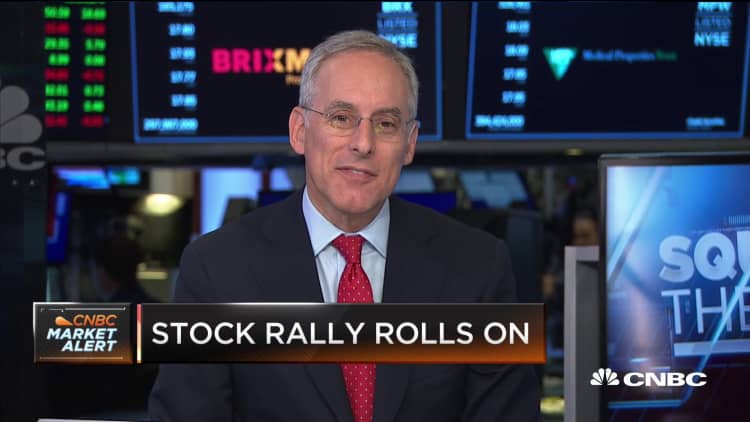A Goldman Sachs stock portfolio that tracks industry-dominant "superstar" companies in the United States is beating the stock market over the last three years.
Among the stocks on the list: Procter & Gamble, which dominates consumer products, Altria Group, which dominates tobacco, along with Google parent Alphabet and PepsiCo. These companies often benefit from a high share of industry sales, strong pricing power and fat profit margins — all of which contribute to a compelling investment thesis, Goldman's chief U.S. equity strategist, David Kostin, wrote Tuesday.

The stock strategist added that companies with the highest share of industry sales have returned 49% since 2015 compared with 16% for companies with the lowest share after controlling for industry group.
"The market positioning of superstar firms often allows for greater bargaining power over consumers and workers and higher profitability," Kostin said in a note to clients. "Superstar firms have been one driver of the explosion in US corporate margins post-crisis."
The decline in the number of listed U.S. companies from 8,000 in 1996 to about 4,000 today through fewer initial public offerings and M&A has led to a concentration in a number of key industries, Goldman added.
While dominance has led to hefty bottom lines at a number of well-known conglomerates able to maintain sizable market share, regulatory troubles could be brewing for a few.
U.S. lawmakers are looking to crack down on big tech companies like Facebook, Amazon and Alphabet through congressional probes into their impact on public life. Both the Federal Trade Commission as well as the Department of Justice are also launching investigations into whether some of the nation's largest tech titans could be prosecuted under antitrust law or for violations of privacy.
That's kept their stocks under pressure, with Facebook and Alphabet each down at least 5% over the last month. And while regulators are still months, if not years, away from a conclusion, Kostin added investors should monitor developments closely.
"From a strategic perspective, we believe that uncertainty is still too high to recommend investors avoid stocks in the regulatory spotlight," he wrote. "But while the impact of regulation on today's stocks will be case-dependent, similarities among historical outcomes suggest that investors should reduce exposure to any stock that becomes subject to an antitrust lawsuit. In the past, stock valuations and share prices declined between lawsuit filing and resolution."


